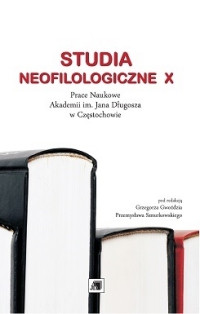Quantitative Evaluation of Emotional Intelligence of Secondary School English Teachers
Quantitative Evaluation of Emotional Intelligence of Secondary School English Teachers
Author(s): Nina BarłożekSubject(s): Language and Literature Studies, Foreign languages learning
Published by: Uniwersytet Jana Długosza w Częstochowie
Summary/Abstract: The emotional state of students must not escape their teachers’ attention. It appears that cognitive intelligence is not the only fundamental factor which shapes the academic success of students. Emotional intelligence (EI) is an influential concept, which has gained significantly more prominence since the 90s. EI as a concept has been scrutinized due to the fact that emotional competencies may significantly reduce undesired behaviour in social and educational settings. Additionally, if learners’ emotions are treated as a central part of the learning process it follows that their personal and academic outcomes will be improved (Kusché & Greenberg, 2006). Yet, emotional competencies of students should not be overly emphasized. Teachers must demonstrate a high level of emotional intelligence in order to be able to enhance the emotional abilities of their students. The article illustrates the impact of teachers’ level of emotional intelligence by the manners in which those teachers are assessed by their students. For this purpose 20 teachers of English completed the test of emotional intelligence known as the: the TIE 1.0 test. 493 students expressed their opinion on those teachers by means of a questionnaire in which the teachers’ emotional competencies were questioned. The results highlighted the fact that the teachers demonstrating higher levels of emotional intelligence have significantly better relationships with their students, which determines the level of students engagement and involvement in the process of learning a foreign language. The teacher, in order to be successful, must treat students in a holistic way by taking students’ emotions into account rather than concentrating purely on the material which needs to be taught.
Journal: Prace Naukowe Akademii im. Jana Długosza w Częstochowie. Studia Neofilologiczne
- Issue Year: X/2014
- Issue No: 10
- Page Range: 109-124
- Page Count: 16
- Language: English

